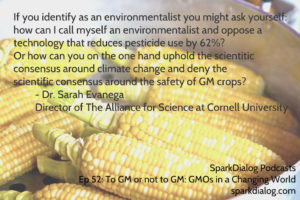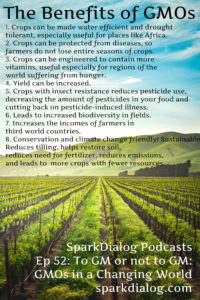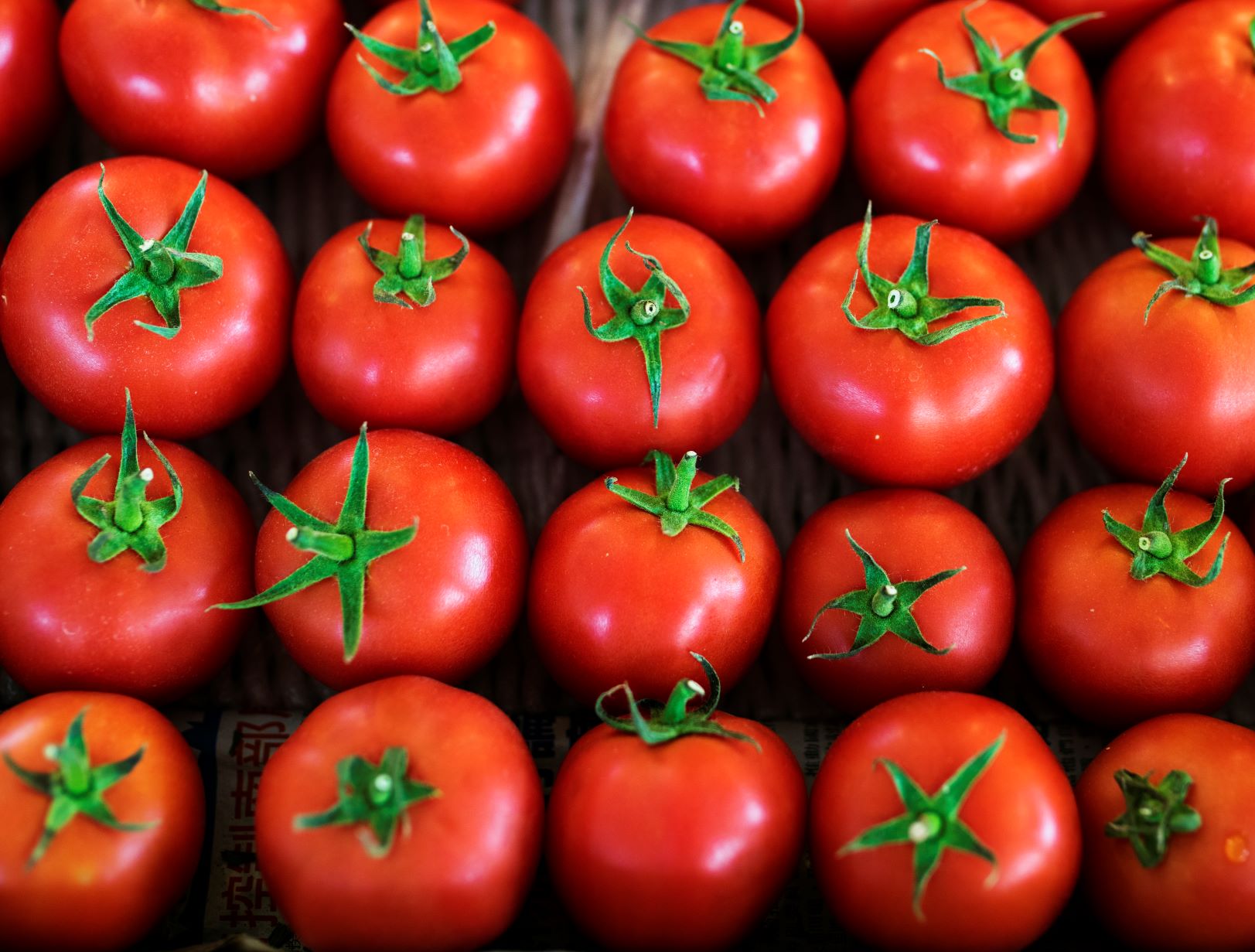Podcast: Play in new window | Download
Subscribe: Apple Podcasts | RSS | More
I’m sure you heard about the debate, and you probably have an opinion about it. Should genetically modified organisms, or GMOs, be part of our food supply? Have you ever refused to buy a product because it was labeled “Partially produced with genetic engineering”? What exactly does GM mean? What is the benefit of GMOs in the developing world?
 Similar to the climate change debate or the anti-vax movement, there is a lot of misinformation out there about GMOs. So let’s get the facts: are GMOs safe? What products that you buy contain GMOs? And how can GMOs change how we do agriculture?
Similar to the climate change debate or the anti-vax movement, there is a lot of misinformation out there about GMOs. So let’s get the facts: are GMOs safe? What products that you buy contain GMOs? And how can GMOs change how we do agriculture?
Today we talk to Dr. Sarah Evanega, the Director of the Alliance for Science, based at Cornell University. We discuss how a GM crop is created, if they are safe, and how GMOs help us with problems in our changing world, such as climate change, sustainability, and helping us feed the near ten billion people that the world is projected to have in 2050. Sarah also talks about how GMOs in the developing world are viewed. There, agriculture is much more integrated with the average person’s life. We discuss how GMOs are helping people in these areas of the world overcome hunger, drought, the effects of climate change, and diseases. Among these are farmers such as Md. Milon Mia, an eggplant farmer in Bangladesh, or Selma Njukwage, who farms maize in Tanzania.
You can follow Sarah at @sarah_evanega and the Alliance for Science at @scienceally.

Md. Milon Mia discusses his crop of genetically engineered eggplant.

One thought on “Ep 52: To GM or not to GM: GMOs in a Changing World – with guest Dr. Sarah Evanega”
Thanks for raising this topic for discussion. Although my comments are pretty standard arguments against GMO, there are a few points I want to raise.
I do acknowledge that GMO’s could have many of the benefits as listed, and it would be great if many agricultural issues could be solved this way.
But the use of GMO’s raise the following concerns that I haven’t seen answered to my satisfaction:
1. Logic: No evidence of harm vs. Evidence of no harm. Are we being susceptible to the “induction fallacy” – that well.. no one looks like they were harmed, so it must be ok VS. are we sure this doesn’t harm us. Some of this logic also has been used in a paternalistic approach “We are the experts, trust us” policy, such as X-raying fetus in utero in the last century, and took many many years of work to stop the practice despite the evidence of cancer in babies.
2. Thinking on the policy/consumer/economic side, there is a lot of short-term financial incentive for companies to push for GMO crops (Bayer-Monsanto comes to mind), which concerns me. I think scientists are well-intentioned, but once it becomes a business proposition, then where will it go? Companies are incentivized to suppress information that is not supporting their bottom line. (Pharma and Big food come to mind)
3. GMO crops, at least as done in the US, leads to very large monocultures of single strain of an organism, which has led to loss of biodiversity, not only on the ground, but in particular, in the soil. I disagree with the assertion that GMO crops increase biodiversity, given the evidence for the opposite in the U.S.
Monocultures also drain the soil of very specific minerals, which then require high amount of fertilizer use to replenish the soil, the production of which creates huge amounts of pollution. Carbon footprint of bread comes to mind: (Gaucher 2017 Nature Plants https://www.nature.com/articles/nplants201712.epdf) (https://www.cnn.com/2017/03/03/world/cost-of-bread-conversation/index.html) Soil biome destruction is another concern.
I don’t have answers to the problems that GMO’s could solve either, but